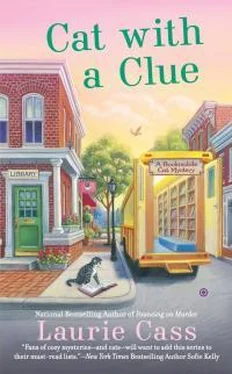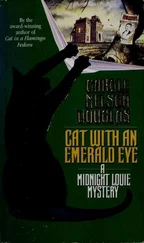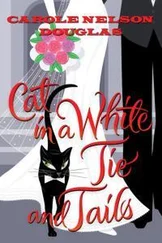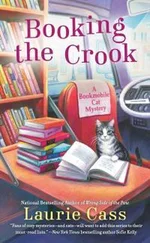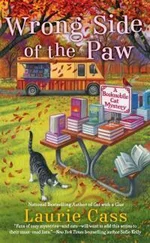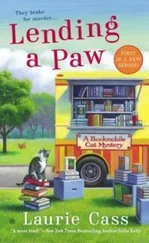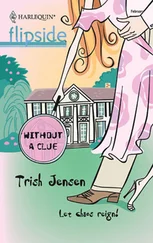Don’t take it personally, I told myself. She’s like this with everyone .
“Take last week,” Denise was saying. “Not only did I have to help my neighbor down the street move around a load of dirt, but I ran into Kim Parmalee downtown, and she was all in a tizzy about a bunch of new furniture. She couldn’t decide on fabrics for some upholstery, and if there’s one thing I know, it’s furniture, so I dropped everything to help her. And if that wasn’t enough, my son called and said he was wondering about his dad’s power tools.” Denise made a whuff sort of noise. “So I had to go down to the basement and do an inventory of everything. My son said I didn’t need to, that a couple of pictures would been enough, but I know better.”
She rolled her eyes and though I was tempted to roll mine, too, I maintained my polite, if stiff, smile.
“I absolutely know better,” she said. “First it’s pictures, then it’s what brand, then what model, then he’ll want to know how old everything is. Better off just to do the work now and take care of it at the front end.”
Absently, I nodded, which provided her with enough conversational fuel to move to her next topic: the recently appointed city councilman. Denise had nothing good to say about him—surprise!—and wanted to make sure I knew about his vote regarding the purchase of a new snowplow truck.
“Brand new,” she said. “Do you know how much those things cost? Why can’t they buy a used one? I mean, does that make any sense?”
But I wasn’t listening, not really, because I was back at the fabric part of the conversation, when Denise had said that Kim Parmalee, née DeKeyser, a woman who’d been rumored to be close to bankruptcy, was shopping for furniture.
* * *
Every time I had a spare moment the rest of the morning, I called someone on Denise’s list. I ended up leaving messages at most of the numbers, and every time I did, I wondered if the exercise was a complete waste of my time. The odds of learning something useful felt slim to slimmer.
Still, it was something I could do. I’d considered giving the list to Detective Inwood or to Ash, but they were busy and this wasn’t real investigative work; it was just narrowing down the names. I was saving them time and would tell them so if they found out what I was doing and tried giving me The Look, the one that meant I should leave law-enforcement work to the law-enforcement officers. And I would do that, as soon as there was a true law-enforcement task to get done.
All of which meant that I worked through noon and didn’t realize until about two in the afternoon that I hadn’t had any lunch.
“No wonder I’m hungry,” I said out loud. I’d eaten a small breakfast and had no snack, because I still needed to do my grocery shopping. If I didn’t get some food into me soon, I was going to be cranky all afternoon.
So I snatched up my backpack—holder of my wallet, cell phone, and a spare book, among numerous other things—and headed out to the lobby.
“Hey, Holly?”
My friend looked up from the computer and put her index fingers to her forehead in a parody of concentration. “I’m reading your mind,” she said. “You’ve finally realized you haven’t had any lunch, and now that your stomach lining is starting to digest itself, you’re going to get some food before you keel over from low blood sugar.”
“I was more worried about getting irritable.”
“As you should be,” she said, crossing her arms.
Whenever she did that, she looked like she could be a close blood relative to Denise. But I’d long ago vowed to keep that thought to myself. I smiled and started to walk backward as I said, “I’ll be back in half an hour, if not less.”
Holly’s eyes went wide. “Minnie, you—”
“Twenty minutes, then,” I said, still walking backward. “If anybody wants anything from Shomin’s, call me on my—”
Bam!
My body thumped into something and my backpack went flying. I staggered, my breath leaving me with an oof . My arms wheeled around in circles as I instinctively tried to keep my balance, but it was a lost cause and I dropped to my knees on the tile floor with a wincingly loud crack!
“Good afternoon,” said a resonant male voice.
I looked up and saw the president of the library board. “Oh. Hi, Otis. Sorry about barging into you. I was just . . . uh. . . .” I glanced around. There were three other people standing there: two library board members and a fortyish man in a jacket and tie.
The contents of my backpack were strewn across the lobby floor; I must not have zipped it closed when I’d grabbed it out of my office. Still on my knees, I scrambled to gather everything without looking like an idiot. It was far too late for that, of course, and I knew it, but since my head boss, my vice-boss, a subsidiary boss, and a possible supervisor were all looming above me, it made sense to make an attempt.
“Here,” said a male voice. “Let me help.”
I looked, startled, at the guy who might be the new Stephen. He’d crouched down to my level and was gathering up my scattered possessions. “Thanks,” I said, accepting a small spiral-bound notebook, a handful of pens, and a set of fingernail clippers and shoved it all into the backpack, along with the things I’d already added.
“Is this yours?” The guy held out a packet of Eddie treats.
“Thanks,” I said again, taking the treats. As we stood, me to my five feet of height and him to his not-quite six feet, Otis said, “Graydon, this is Minnie Hamilton, assistant director of the library. Minnie, this is Graydon Cain, one of the candidates we’re interviewing for the directorship.”
Graydon’s face went from politely kind to frozen. He stared down at me. “You’re Minnie Hamilton?”
I blinked. Somehow I’d thought he’d known who I was. Somehow I’d figured he’d seen my mishap and understood that these things can happen to competent and intelligent people who sometimes didn’t pay quite enough attention to where they were going.
“Yes,” I said, lifting my chin. “I’m Minnie.”
He nodded but didn’t say a word. At least not to me. Instead, he looked at Otis and the other two board members. “Shall we get started? I don’t want to take up any more of your time than is necessary.”
They walked away without a backward glance.
I watched them go, getting a sick feeling deep in my stomach that my professional future was not as rosy as it had been ten minutes earlier.
Chapter 14
The next day was a bookmobile day. We were in the southeast part of Tonedagana County, and driving the curvy, hilly, narrow roads kept my mind too occupied to tell Julia the tale of the previous afternoon. I’d started to talk about it at the first stop, but we were stampeded by too many children in search of books for me to be able to finish. The moment I started braking for the second stop, however, Julia was pumping me for the rest of the narrative. I obliged, and was to the part where I was walking backward in the lobby, when a carload of white-haired ladies pulled into the parking lot.
“Have to finish this later,” I told Julia, nodding at our incoming visitors. “It’s the softball team.”
Julia’s face, which had started to droop, perked up. “All of them?”
I peered out the window. “No, but more than half. Pitcher, catcher, shortstop, left fielder, center fielder.”
“Oh, excellent.” Julia beamed. “I love these ladies. What shall we give them today?”
A few months earlier, we’d stopped for lunch at a small café in the tiny town of Peebles. The waitress had noticed the mammoth vehicle parked at the curb and asked us about the bookmobile. When I said the phrase “thousands of books,” she’d grinned and said, “I have to tell my mother-in-law about this. Do you happen to have a copy of your schedule?”
Читать дальше
